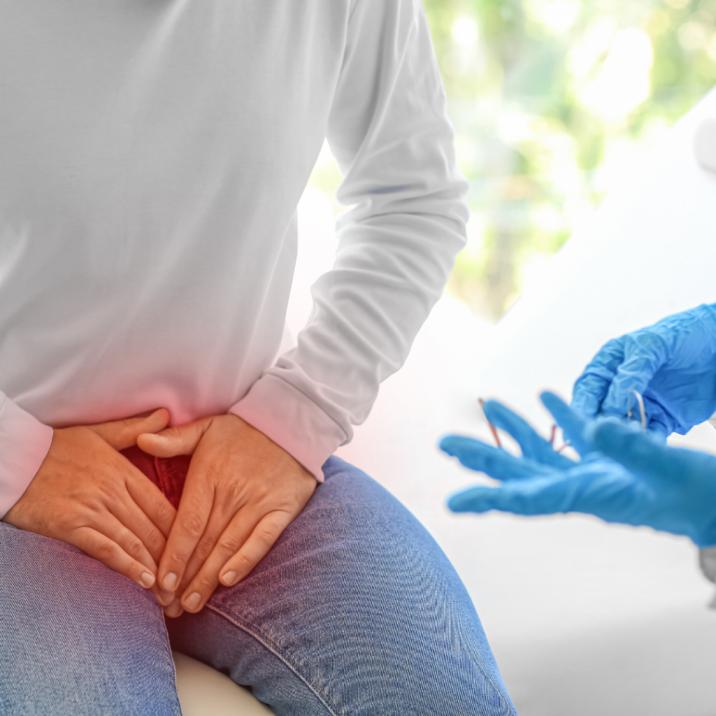Ultimate Guide to Prostate Health: Easy Tips, Prevention, and Treatments
Importance of maintaining good prostate health Prostate health is important for overall well-being, especially as men get older. The prostate is a small gland that affects urination and sexual health. Keeping your prostate healthy helps prevent issues like enlargement or cancer. This guide offers simple tips to maintain good prostate health, prevent common problems, and explore treatment options if needed. You’ll learn about helpful lifestyle changes, diet, and medical advice to support your prostate. This guide aims to keep you informed and proactive about your prostate health. Understanding Prostate Health Understanding prostate health is important for men, especially as they get older. The prostate is a small gland below the bladder and in front of the rectum. It helps make semen and affects how you urinate. Common prostate problems include an enlarged prostate (BPH) and prostate cancer. Regular check-ups and noticing symptoms like frequent urination or pain are important for early treatment. Eating well and exercising regularly help keep your prostate healthy and can prevent problems. Understanding these basics helps you take care of your prostate health. What is the Prostate? The prostate is a small gland, about the size of a walnut, located below the bladder and in front of the rectum. It makes a fluid that helps nourish and transport sperm during ejaculation. The prostate surrounds the tube (urethra) through which urine and semen pass. While it’s important for reproduction, it can also affect how you urinate. As men get older, the prostate can get bigger or have other problems, causing issues like frequent urination or discomfort. Regular check-ups are important to monitor and address any potential prostate problems. Symptoms and Diagnosis Prostate problems can cause different symptoms.For benign prostatic hyperplasia (BPH), you might need to urinate often, have trouble starting or stopping urination, or have a weak urine flow. Prostate cancer can cause lower back or pelvic pain, frequent urination, or blood in the urine. Prostatitis might lead to pelvic pain, pain when urinating, or flu-like symptoms. Doctors diagnose these issues with a digital rectal exam (DRE), blood tests for prostate-specific antigen (PSA), and sometimes imaging tests or a biopsy. Recognizing Prostate Health Symptoms Recognizing prostate health problems early is important. For benign prostatic hyperplasia (BPH), look out for needing to urinate often or urgently, trouble starting or stopping urination, and a weak urine flow. Prostate cancer might cause pain in the lower back or pelvis, frequent urination, or blood in the urine. Prostatitis can lead to pelvic pain, pain during urination, or flu-like symptoms. If you notice any of these signs, see a doctor. Catching these issues early can help with better treatment and managing your prostate health. Preventive Measures for Prostate Health To keep your prostate healthy, follow these simple steps: Eat lots of fruits, vegetables, and whole grains, and try to cut back on red meat and processed foods. Exercise regularly to stay fit and reduce inflammation. Drink plenty of water and think about adding omega-3 fatty acids to your diet. See your doctor regularly to catch any issues early. Avoid smoking and drinking too much alcohol, as they can harm your prostate. By making these habits part of your life, you can help keep your prostate healthy and avoid problems. Regular Health Screenings Regular health screenings are important for catching problems early and preventing diseases. Visit your doctor for routine check-ups to check blood pressure, cholesterol, and blood sugar. Get cancer screenings like mammograms for breast cancer and colonoscopies for colon cancer based on your age and risk. Don’t forget regular dental and eye exams. Keeping up with vaccinations and health screenings helps find issues early and ensures you get treatment on time. This supports your long-term health and reduces the risk of serious health problems. Treatment Options for Prostate Conditions Treatment for prostate issues depends on the problem. For benign prostatic hyperplasia (BPH), medicines like alpha-blockers and 5-alpha reductase inhibitors can ease symptoms. If symptoms are severe, procedures such as TURP or laser therapy might be needed. For prostate cancer, options include surgery, radiation, hormone therapy, or chemotherapy, depending on how advanced the cancer is. Sometimes, doctors may recommend active surveillance for less aggressive cancers. It’s important to talk with your doctor to find the best treatment based on your specific condition and health. Building a Prostate Health Routine To build a prostate health routine, follow these simple habits. Eat a balanced diet with plenty of fruits, vegetables, and whole grains, and limit red meat and processed foods. Exercise regularly to stay healthy and reduce inflammation. Drink lots of water and include omega-3 fatty acids from fish like salmon. Talking to Your Doctor Talking to your doctor about prostate health is important. Mention any symptoms or concerns you have, like frequent urination or pain. Ask which screenings you need based on your age and risk. Find out about the pros and cons of different treatments if you have a prostate issue. Share your medical history and any family history of prostate problems. Be honest about your diet and exercise habits. Regularly talking to your doctor helps catch problems early and lets you make informed choices about your health and treatment.

